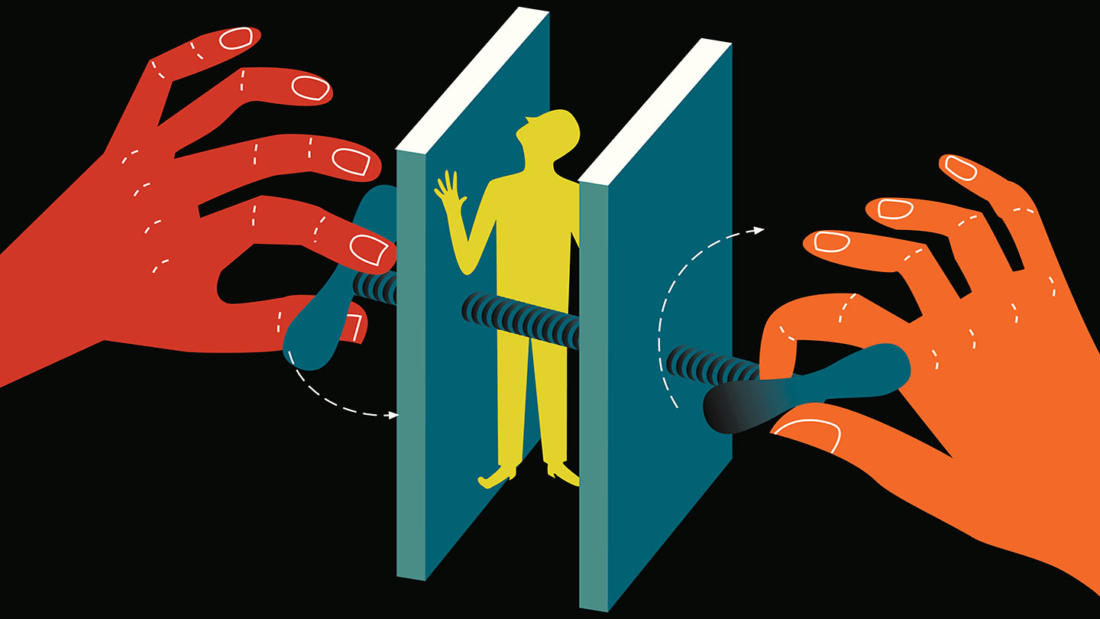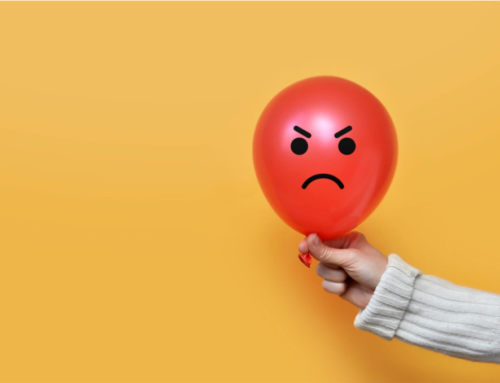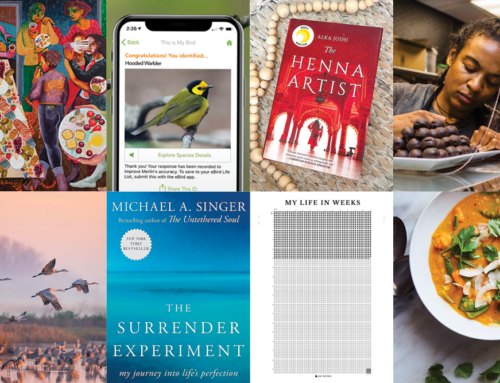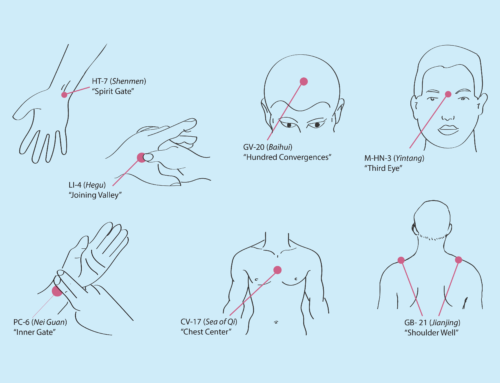Co-written by local food blogger and writer Gwen Van Velsor and Sarah O’Leary, L.Ac. & Kim Hennessee, L.Ac.
Rolling up my mat at the end of a very sweaty Bikram yoga session, my heart still beating fast, I couldn’t catch my breath. From the moment I’d offered the instructor a hurried “namaste,” my brain had hit full tilt-a-whirl with all the tasks for the day ahead, all the tasks I’d failed to do yesterday, and the current drama that was my love life. It didn’t help that I hadn’t slept soundly in weeks, fueled my caffeine addiction like a fiend and considered sweet potato chips dinner. Before leaning into a full on panic attack, I closed my eyes and concentrated on breathing.
I didn’t have anxiety, anxiety had me
Anxiety can manifest itself in many different ways. Usually characterized by feelings of apprehension, uncertainty, and fear, anxiety can send us into a tailspin of worry and stress. These feelings can consume our brains, our bodies and our very breath without treatment.
The difference between anxiety and/or depression that is managed is that you can experience the feelings of either, but know that they are not forever. When it “has you” you can feel buried in the experience. You may feel rather removed from what it feels like to be happy, content or calm. For some of us, using medication for a period of time to help lift the ‘heavy load’ that we can’t seem to budge on our own is necessary and extremely helpful.
For some, medication is a good choice. It may not be true for all that if you: eat right, exercise, avoid caffeine, and live a healthy lifestyle, your anxiety or depression will go away. And while anxiety is sensitive to stress, stress is not necessarily always the root. Avoiding anxiety tends to reinforce it.
It is not uncommon for even those who feel their anxiety and depression is mostly managed with medication to still experience bouts of anxiety or depression. While some of the anxiety or depression will be lifted, those feelings won’t be “cured” with medication. When feelings of discomfort still arise it can feel disappointing or even scary: “is IT coming back?”. This is when we encourage folks to reach into their tool belt to look for ways to be in their experience with less suffering: getting outside, exercise, or acupuncture.
How acupuncture helps
Studies are showing that acupuncture has antidepressant effects and in some cases, is just as effective as medication. Acupuncture stimulates the the production of certain opioids that the affect the nervous system. In the opposite way that stress activates the nervous system, acupuncture stimulates the relaxation response thereby allowing your body to naturally self regulate. Additionally acupuncture has been shown to relieve some of the side effects, namely loss of libido, from taking SSRI’s which are commonly used to treat anxiety and depression.
By considering the unique needs of each patient, acupuncturists seeks to identify the imbalances that may be causing the anxiety, versus treating just the symptoms themselves. Your acupuncturist will take time to learn about your unique story and work to get you out of the extreme feelings anxiety brings about and toward a state of more balance.
We’ve added therapy to our community
When anxiety and depression “have us,” we can turn to our tool belt of resources, including “talk therapy,” or cognitive behavior therapy. Many studies point to the long-term effectiveness of therapy, which can be just as effective as medication, for the treatment of anxiety.
Here at Mend we want to give you as many tools as possible to combat the anxiety or depression that is holding you down. Sarah, Mend’s founder, was a social worker before becoming an acupuncturist. She also grew up with a therapist for a mom. She’s simply a fan of talk therapy and enjoys an open door relationship with a therapist herself.
We are thrilled to partner with two wonderful Baltimore based therapists Erin Mannion, LCSW-C and Rebecca Burrett, LCSW-C. They offer their services in our One on One Clinic weekly.
A combination of resources
Anxiety is complicated. What works for one person may not work for another. Join us in taking a holistic approach to your wellness by giving acupuncture a try for your anxiety symptoms. We also wholeheartedly encourage you to address anxiety by partnering treatment with therapy, exercise, medication, meditation, or whatever other methods you have gathered in your toolbelt.
Namaste.
(This time BREATHE).
References
Yang, Liu, Na Yue, Xiaocang Zhua, Qiuqin Hana, Bin Lia, Qiong Liu, Gencheng Wu, and Jin Yu. “Electroacupuncture promotes proliferation of amplifying neural progenitors and preserves quiescent neural progenitors from apoptosis to alleviate depressive-like and anxiety-like behaviours.”
Arranz, Lorena et al., Impairment of several immune functions in anxious women. Journal of Psychosomatic Research , 2007, Volume 62 , Issue 1 , 1 – 8
Anxiety and Depression Association of America. “Myth-Conceptions,” or Common Fabrications, Fibs, and Folklore About Anxiety, 2016





